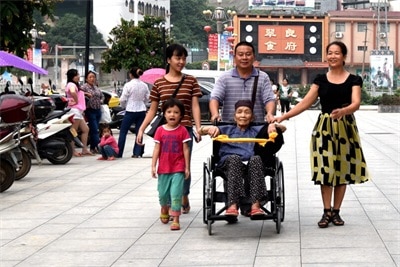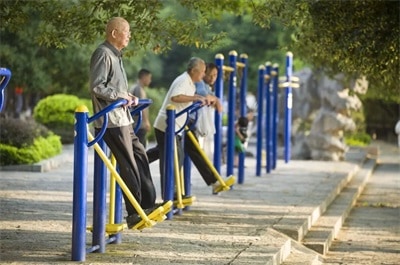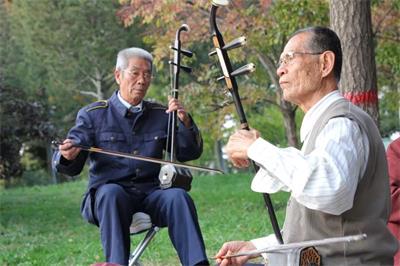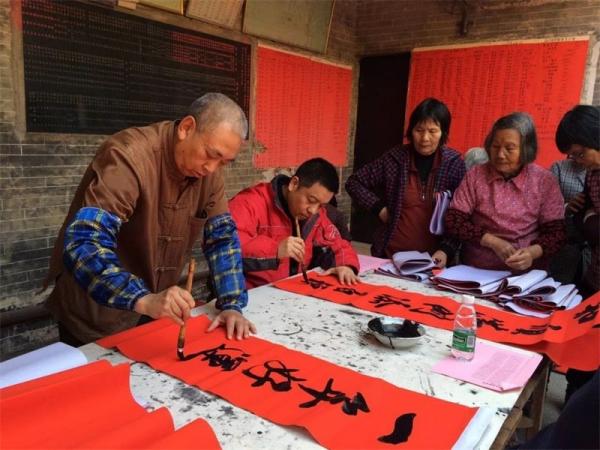Elderly Care in Urban and Rural China
China conducted the 7th National Population Census in the end of 2020 and released the results on May 11th 2021. Data shows China’s population reached 1.41bn last year with slowest growth in decades. Hot topic with the publication of the census result is China’s family planning policy, especially after Chinese government announced that it will allow couples to have up to three children. At the same time, another hot topic is the aged tendency of population – how to build an efficient eldercare system in the coming 10-20 years become one of the most important works Chinese government must do. Unlike most western countries, Chinese people have their special view on eldercare – bringing up sons to support parents in their old age. Do people still believe in this traditional view? And how elderly care is working in China now and in the future?

With a history of over 2000 years, the idea of children, especially sons must support parents in their old age is called “Xiao”, or filiality. Though there was no elderly care system in ancient China, the whole society was following the etiquette of respecting and supporting the elderly in the family. Due to radical social changes in the end of Qing dynasty, the new government began to develop eldercare system introduced from western country since early 1900s. Eldercare was not a moral obligation anymore. But the idea of taking care of parents by children has never been taken out completely from Chinese people’s traditional family view – more in rural areas and less in cities
Elderly care in China city
Following the philosophy of I Ching (the Book of Changes), Chinese people is good at accepting changes and foreign things as the environment around them changes. China’s economy has experienced a boost in the past 40 years, which gives great influences to people’s life, including consuming, marriage and elderly care. The one-child policy is stricter in the city, which make great changes to family structure - “4-2-1” family structure which consists of four grand parents, two parents and one single child. When young people have more choices to work in other cities and even in other countries, it makes the traditional family elderly care difficult. Those parents or child in descent family finances tend to accept new types of eldercare services.
Family Supporting – Most traditional way in China and is still the first choice by city seniors. A report by Xian Statistics Department in 2017 shows that 58.1% of the interviewees choose to stay at home. Usually these people are from 60 to 75 and can deal with everyday life themselves. Their children live with them or in the same city and can help them easily. Some may hire a care worker to cook, to clean or to take care elders’ daily life. Elders can enjoy the life in their preferred way, like walking to nearby parks, chatting with other seniors in the same community, playing chess with friends, etc.
Organization Retirement – There are 204000 geriatric nursing homes with 7.75 million beds in China at the end of the year of 2019. Averagely every thousand elders have 30.5 beds. Due to all kinds of reasons, like the price, people’s traditional view and service, these nursing homes are facing a problem – both high vacancy rate and lack of cheap vacancy exist side by side. More than half of the nursing homes are private owned. >> Read more The Life after Retirement in China

Though there are some supports from government, it is still difficult to make profit when Chinese people cannot fully accept leaving home to nursing homes. There is still a long way to go.
Community Aged Care – Seems a compromised, but the most fitted way in current China society. Elders can still live in their own family and only enjoy services provided by the aged care institutions in the community in daytime. The environment, the neighbors and friends, daily activities can keep the same as before, and children won’t be worried all the time. The price is more acceptable to most families.
Elderly care in China villages
After decades of urbanization, 60.60% of Chinese population is urban inhabitant in the end of 2019. There are 55.16 million people in China lives in rural areas. One-child policy was not so strictly carried out in villages, especially after the year of 2000. Minority people can have two children, and if the first child is a daughter, the couple can have their 2nd child. When parents get old, family support is the first eldercare choice in Chinese rural areas. In fact, many people lives in towns have very tight relations with villages. Though they’re urban inhabitants in law, they still follow the traditional ideas in most of their life including elderly care.

In the past, one of the biggest differences between urban elders and rural elders was the pension system. Villagers did not have endowment insurance and couldn’t enjoy pension. They have farmland and homestead, which are the supports of their live when they or their family member can work. If the elders have lost the ability of working, the only support is usually from children, unless they are household enjoying the five guarantees (childless and infirm old persons who are guaranteed by government with food, clothing, medical care, housing and burial expenses).
Since 1998, China has begun to carry out rural endowment insurance and since 2009, which has been updated and widely spread out in rural areas. Rural people over 60 years old can now get pension if they take part in the insurance plan.

In China, the cultural core of "providing for the aged and respecting the elderly" will last for a long time. Family and children are still the pillars of "depending on and enjoying the old" in people's old age, but will be changed in some way as economy and society changes.
You may also be interested in: